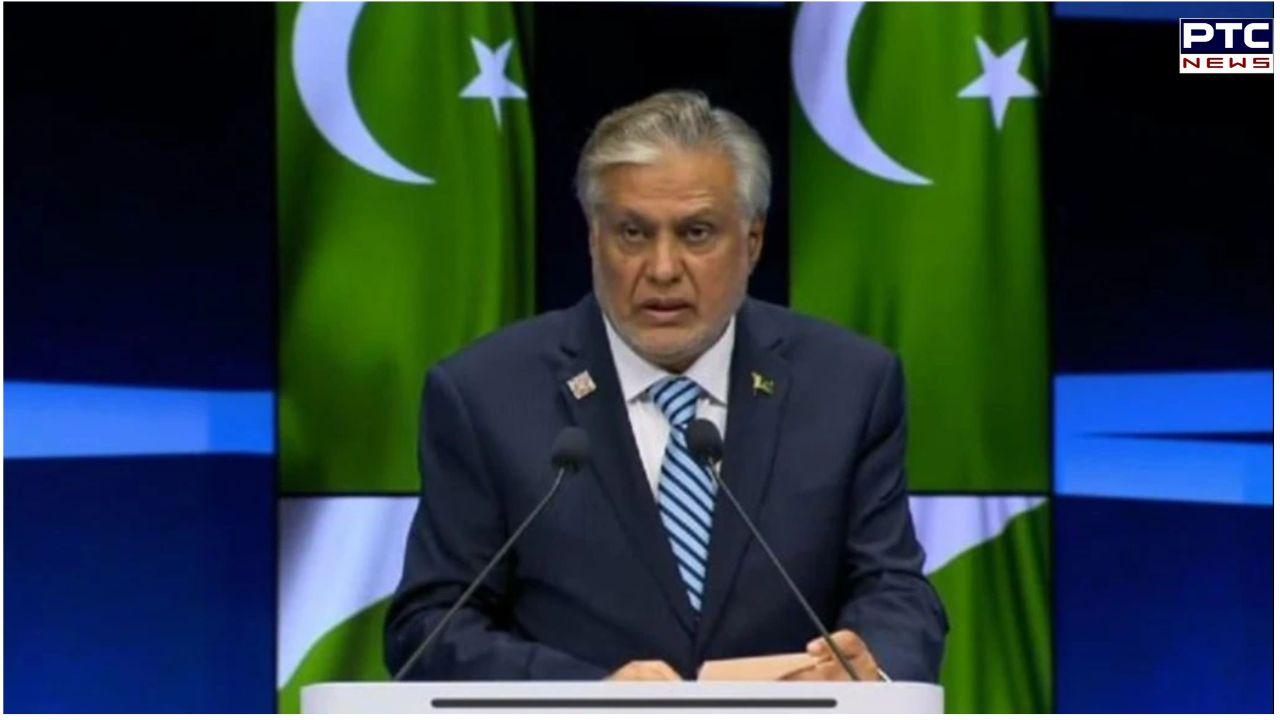

'We asked India for ceasefire': Pakistan's Deputy PM admits air bases hit in Operation Sindoor
PTC Web Desk: In a startling revelation, Pakistan's Deputy Prime Minister Ishaq Dar has publicly admitted that Islamabad was forced to request a ceasefire from India following missile strikes on two of its key air bases by the Indian armed forces during Operation Sindoor. The operation, launched by India on the night of May 7-8, was a retaliatory response to the Pahalgam Terror Attack on April 22, which killed 26 tourists in Jammu & Kashmir.
Appearing on a national television show, Dar confirmed that Nur Khan Air Base in Rawalpindi and Shorkot Air Base—also known as PAF Base Rafiqui—in Punjab province, were directly hit during the Indian strike. Both bases are considered vital to Pakistan’s military aviation infrastructure.
Pakistan Deputy PM Ishaq Dar' openly admits 2 things in this interview
????India struck the Nir Khan Air base and Shorkot Air base
???? Ishaq Dar' says Saudi Prince Faisal called him asking "Am I authorised to talk to Jaishankar also and CONVEY ..and you are READY TO TALK"… pic.twitter.com/45TJqnlWKu — OsintTV ???? (@OsintTV) June 19, 2025
"Unfortunately, India once again launched missile strikes at 2.30 am. They attacked the Nur Khan Air Base and Shorkot Air Base," Dar said during the interview. He added that within 45 minutes of the strike, he received a call from Saudi Prince Faisal, who had just spoken with US Secretary of State Marco Rubio. The Saudi prince asked for Dar’s permission to relay a message to India’s External Affairs Minister S Jaishankar, conveying Pakistan’s willingness to cease hostilities if India did the same. Dar confirmed that the message was passed on promptly.
Operation Sindoor: Nine terror bases targeted
Launched by India in response to the Pahalgam killings, Operation Sindoor involved precision missile strikes on nine terrorist infrastructure hubs located in Pakistan and Pakistan-Occupied Kashmir (PoK). The Indian government maintained that the operation was a necessary and proportionate response to repeated cross-border terrorism.
US and Saudi Arabia acted as backchannel mediators
Following the escalation, US officials were already on high alert, anticipating retaliation from both sides. According to Indian government sources, Washington adopted a neutral public stance but sent a firm private message to Islamabad to immediately activate its military hotline with India to de-escalate. The message reportedly warned Pakistan against any delays.
By May 10 afternoon, Pakistan’s Director General of Military Operations (DGMO), Major General Kashif Abdullah, contacted his Indian counterpart Lt Gen Rajiv Ghai directly at 3.35 pm IST. This development was confirmed by Foreign Secretary Vikram Misri during a press briefing. Both nations agreed to halt all military activities—by land, air, and sea—effective 5 pm IST the same day. However, Pakistan reportedly violated the ceasefire agreement within hours.
Strategic impact: Damage to critical Pakistani military sites
The Nur Khan Air Base, located between Rawalpindi and Islamabad, is one of Pakistan’s most sensitive military installations. It houses both VIP transport operations and key Air Force assets. Social media videos captured large-scale explosions and fires at the base, later confirmed by satellite images.
- With inputs from agencies
